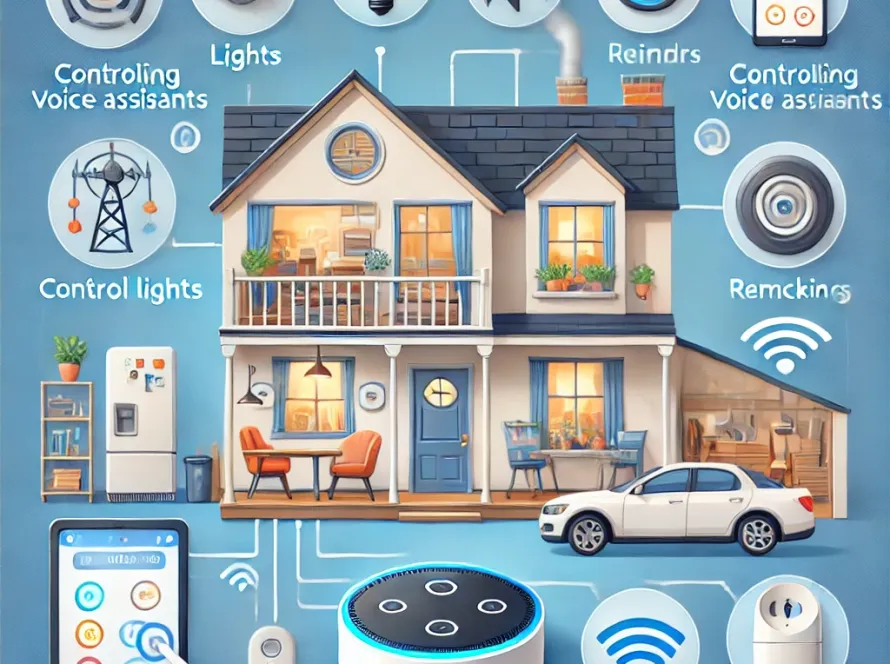Artificial intelligence (AI) assistants have become an integral part of our daily lives, helping us manage tasks, control smart devices, and stay organized. Among the most popular options are Apple’s Siri, Amazon’s Alexa, and Google Assistant. Each of these AI assistants offers unique features and capabilities, making them suited for different users and environments. Here’s a comparison of Siri, Alexa, and Google Assistant to help you decide which one is the best fit for your needs.
1. Voice Recognition and Responsiveness
- Siri: Siri is known for its natural language processing, which allows it to understand and respond to a wide range of voice commands. It’s particularly good at recognizing individual voices, making it a reliable assistant for Apple users.
- Alexa: Amazon Alexa is highly responsive and can pick up commands from across the room, even in noisy environments. Its voice recognition is robust, and it’s known for understanding a wide variety of accents and dialects.
- Google Assistant: Google Assistant excels in voice recognition and often outperforms its competitors in understanding complex queries. It’s particularly strong in answering follow-up questions and maintaining context during conversations.
2. Integration with Smart Home Devices
- Siri: Siri integrates seamlessly with Apple’s HomeKit ecosystem, making it a strong choice for users who already own Apple products. While it supports a growing number of third-party devices, its compatibility is more limited compared to Alexa and Google Assistant.
- Alexa: Alexa is compatible with a vast array of smart home devices, thanks to its open API and extensive developer support. Whether it’s smart lights, thermostats, or security systems, Alexa can control almost any smart device you have at home.
- Google Assistant: Google Assistant also supports a wide range of smart home devices and integrates well with Google’s own products, such as Nest. It offers strong compatibility and can control many third-party devices, making it a versatile option for smart home automation.
3. Ecosystem and Device Compatibility
- Siri: Siri is deeply integrated into Apple’s ecosystem, working seamlessly with iPhones, iPads, Macs, Apple Watches, and HomePods. It’s the ideal choice for users who are heavily invested in Apple products and want a consistent experience across devices.
- Alexa: Alexa’s ecosystem is extensive, with support for a wide range of Amazon products, such as Echo speakers, Fire TV, and more. Additionally, Alexa can interact with a broad selection of third-party devices, making it highly versatile.
- Google Assistant: Google Assistant is integrated into a variety of devices, including Android smartphones, Google Nest products, and Chromebooks. It also works well with third-party devices, particularly those that are part of the Google Home ecosystem.
4. Skills and Actions
- Siri: Siri’s capabilities are expanding with the introduction of Siri Shortcuts, which allows users to create custom commands for specific tasks. However, compared to Alexa’s Skills and Google’s Actions, Siri’s third-party integrations are more limited.
- Alexa: Alexa has a vast library of Skills, which are essentially apps that add new features and capabilities to the assistant. Users can enable Skills to play games, get news updates, control smart home devices, and much more.
- Google Assistant: Google Assistant’s Actions are similar to Alexa’s Skills, offering a wide range of third-party integrations. What sets Google Assistant apart is its ability to interact with Google’s services, like Google Search, Maps, and Calendar, providing more integrated and context-aware responses.
5. Privacy and Security
- Siri: Apple places a strong emphasis on privacy, with Siri processing most requests locally on the device rather than in the cloud. Apple’s commitment to user privacy makes Siri a good choice for those who are concerned about data security.
- Alexa: Amazon provides various privacy controls for Alexa, such as the ability to delete voice recordings and mute the microphone. However, because Alexa relies heavily on cloud processing, there are ongoing concerns about data privacy.
- Google Assistant: Google Assistant offers robust privacy controls, including options to manage and delete your data. Like Alexa, Google Assistant processes requests in the cloud, which may raise privacy concerns for some users. However, Google has been proactive in providing users with tools to manage their data.
6. User Experience and Usability
- Siri: Siri’s user experience is smooth and intuitive, particularly for those familiar with Apple’s ecosystem. It’s well-suited for basic tasks like sending messages, setting reminders, and controlling Apple devices.
- Alexa: Alexa is designed for versatility and ease of use, with a straightforward setup process and user-friendly interface. Its wide range of Skills makes it highly customizable, allowing users to tailor the assistant to their specific needs.
- Google Assistant: Google Assistant excels in understanding natural language and providing detailed, context-aware responses. Its integration with Google’s services adds to its usability, making it a powerful tool for managing everyday tasks.
Conclusion
When choosing between Siri, Alexa, and Google Assistant, the best option depends largely on your existing ecosystem and specific needs. Siri is ideal for Apple enthusiasts who prioritize privacy and seamless integration with Apple products. Alexa offers unmatched compatibility with smart home devices and a vast library of Skills, making it a versatile choice for those who want a comprehensive smart home experience. Google Assistant stands out for its superior voice recognition, deep integration with Google services, and ability to handle complex queries.
Each of these AI assistants brings something unique to the table, and whichever you choose, you’re sure to enjoy the convenience and enhanced living experience they provide.


